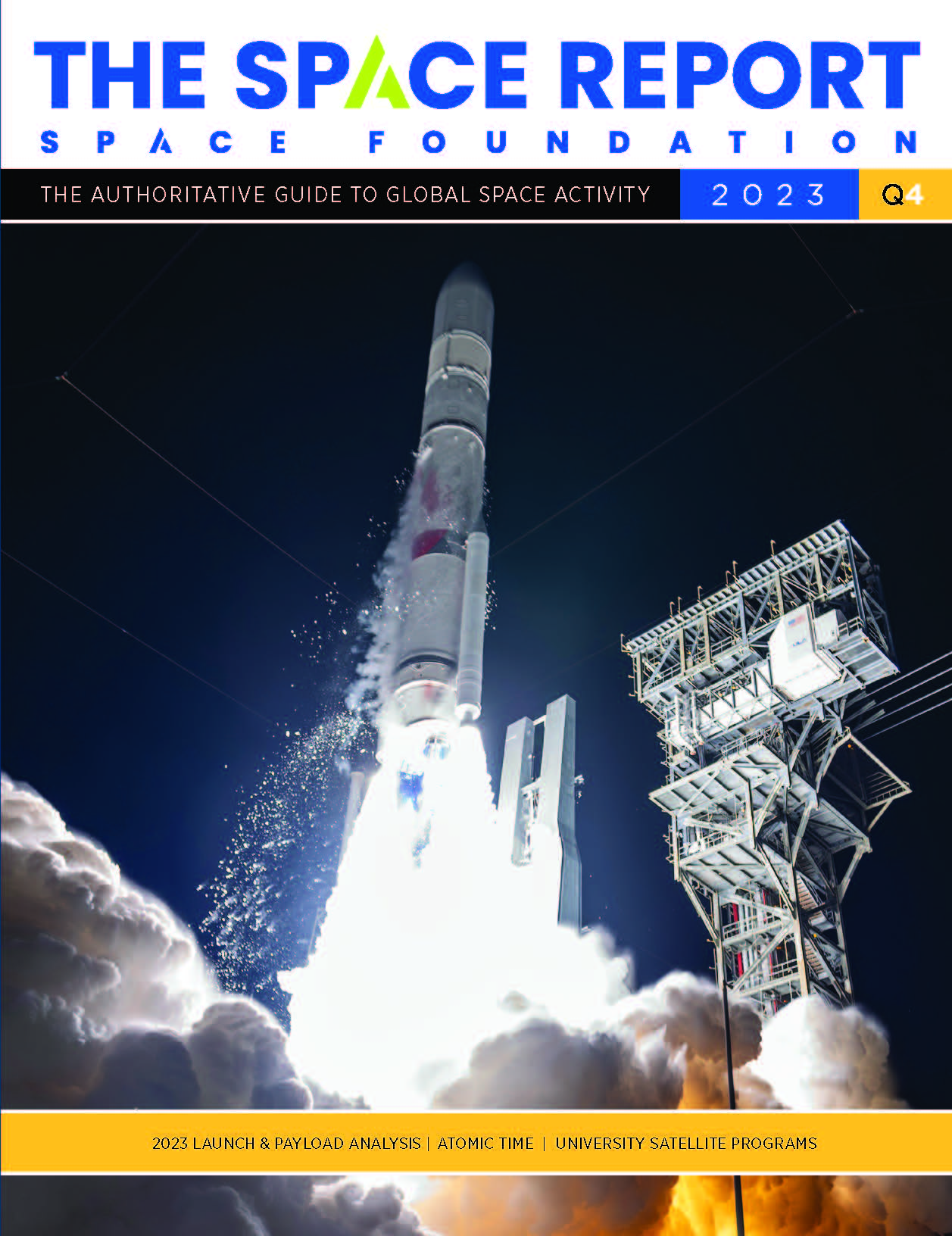The Space Report 2023 Quarter 4: E-magazine

Get All the Data Behind the 2023 Launch and Payload Analysis
Orbital launches in 2023 surpassed 2022’s record by mid-November, continuing
the space industry’s rapid launch and payload growth over the past few years.
The Space Report Q4 explores the record number of launches in 2023, national
launch trends, and the continued growth of commercial operators and the
proliferation of satellites deployed to low Earth orbit. This analysis also
dives into the purposes of the thousands of satellites launched in 2023, the
orbits they were placed into, and the total mass brought to space last year.
The 2024 Launch Vehicle Report
Two American firms don’t want to end 2023 with a bang. SpaceX is hoping to
reach space in late 2023 after a failed launch attempt for its Starship Super
Heavy, which can haul up to 100 tons to orbit. On Christmas Eve, United Launch
Alliance plans to overcome years of delays and launch its long-promised Vulcan
launch vehicle, which is slated to replace the firm’s entire product line of
expendable rockets developed during the Cold War. Other planned maiden flights
in 2024 include the launch of Blue Origin’s New Glenn, and the Ravn-X, a
jet-propelled drone, and rocket combinations designed to loft small satellites
to orbit.
National Geospatial Intelligence Transitions To Machine Learning, New
Partnerships
At the secretive National Geospatial Intelligence Agency, Navy Vice Adm. Frank
Whitworth wants to demystify what his troops and civilian employees accomplish
every day with a new motto: “Know the world, show the way from seabed to
space.” Whitworth, who took the helm in 2022, is the eighth leader of the
nation’s youngest intelligence agency and is pushing initiatives including
using machine learning to scour data from commercial and military satellites
and building partnerships with industry and allied powers. He leads the
world’s best mapmakers, who use intelligence on the ground and imagery from
orbit to help leaders understand the world.
It May Be Time to Reset the World’s Atomic Clocks
As another new year dawns, physicists across the globe remain locked in a
decades-long argument with big impacts for the space industry: What time is
it? Since 1972, the world has carefully measured time with atomic clocks,
translating the decay of cesium atoms into a precise measurement of
Coordinated Universal Time, a global standard. But those atomic clocks are
carefully measuring time for a wobbly planet, pushed and pulled by its
neighbors in the solar system to the point that no single day actually
contains 24 hours. Now, the International Telecommunications Union, which sets
the time standard, is focused on finding a resolution. But reaching a final
deal on how time is measured requires agreement by nations large and small,
including rival superpowers Russia, China and the United States.
But Wait! So Much More Space Awaits.
This quarterly edition contains the latest research and analysis from
Space Foundation and is available for purchase below. But it’s a fraction
of the information available to you.
The Space Report offers a yearly subscription of
four PDFs for $499
and annual online subscriptions that provide interactive graphics,
additional online content, and years of analysis of the global space
ecosystem, developing space markets, space exploration, investment activity,
and space-inspired industries on Earth.
Click here to learn about subscription offers.
Purchase Details:
The Space Report 2023, Quarter 4: e-magazine